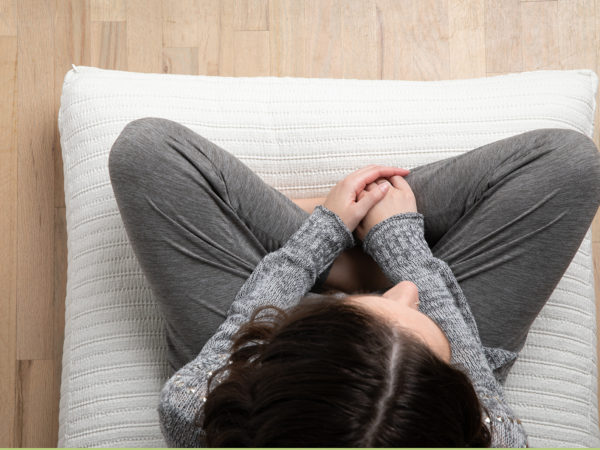Self-Care Practices For Better Sleep

September is Self-Care Month, but it’s important to focus on caring for yourself and your body every day of the year. One of the most important elements of that is ensuring you get quality sleep. Start incorporating these self-care practices into your bedtime routine to experience the deep, restful sleep your body needs.
Yoga
Moving your body is key, and while regular exercise is important to your overall health, doing yoga before bed can also help relax your body and prepare it for deep sleep. Regular yoga practice has been found to help with some cases of insomnia, anxiety, and restless leg syndrome (RLS) and even relieve menstrual symptoms.
Two of the best forms of yoga for sleep are yoga Nidra and Hatha yoga, as these are both slower, more relaxing forms of yoga that encourage deep breathing.
Learn more about different types of yoga and how yoga can help improve sleep in our blog posts, “The 8 Most Popular Types of Yoga” and “Yoga for Better Sleep.”
Journaling
Worries and a racing mind can inhibit your ability to fall asleep. If you’re someone who often finds yourself wide awake in bed thinking about everything that went wrong in the day or planning ahead for what’s to come, journaling is a great way to clear your mind before bed.
One of the great things about journaling is that there’s no “right” or “wrong” way of doing it—it’s all about what can best help you calm your mind. Whether it’s jotting down a quick to-do list for what needs to be done tomorrow, venting about what happened throughout your day, documenting what you’re grateful for, or completing a simple brain dump, getting your thoughts out of your head and on paper can reduce stress and help you fall asleep faster.
Deep Breathing & Meditation
If you’re not one for journaling, another great way to relax and clear your mind before bed is through deep breathing and/or meditation. Studies have shown that performing mindfulness meditations can help improve one’s quality of sleep, especially when practiced consistently. Taking just a few moments of solitude to focus inward each night can make a huge difference in your sleep quality.
Meditation can help clear your mind of worries or stress, calm down your sympathetic nervous system, and relax your mind. By encouraging deeper, slower breaths, your heart rate starts to lower which can help you drift to sleep.
A meditation cushion can be especially useful for a number of reasons. First, it helps promote better posture by relaxing and aligning certain parts of the body. Additionally, some guided meditations may ask you to be seated, so having a supportive place to sit and breathe deeply is beneficial. Finally, having the visual of seeing a meditation cushion in your home is a helpful reminder to meditate each day.
Learn more about the many benefits of meditation from an expert: Susan Piver in our article, “Meditation Benefits: An Interview With Susan Piver.”
Comfortable Surroundings
One additional piece to self-care is ensuring your own comfort and relaxation when it’s time to go to bed. Investing in bedding that not only is gentle on your skin and comfortable to sleep on but also includes natural wellness benefits like cooling or thermoregulating properties, can be extremely beneficial when it comes to a good night’s sleep.
No matter which self-care practices are best for you, the most important thing is to take care of your body and mind by giving yourself some extra love and care.
Today’s Health Topics
Editor's Pick
Health Focus
Ask Dr. Weil's Q&A
| Weekly Wellness Bulletin |
| Sign up for our once a week, in-depth health bulletin - sent out on Thursdays. Dr. Weil shares the very latest from the ever-changing world of health and nutrition. Stay on top of the latest news in this doctor-reviewed weekly compilation. |
|










